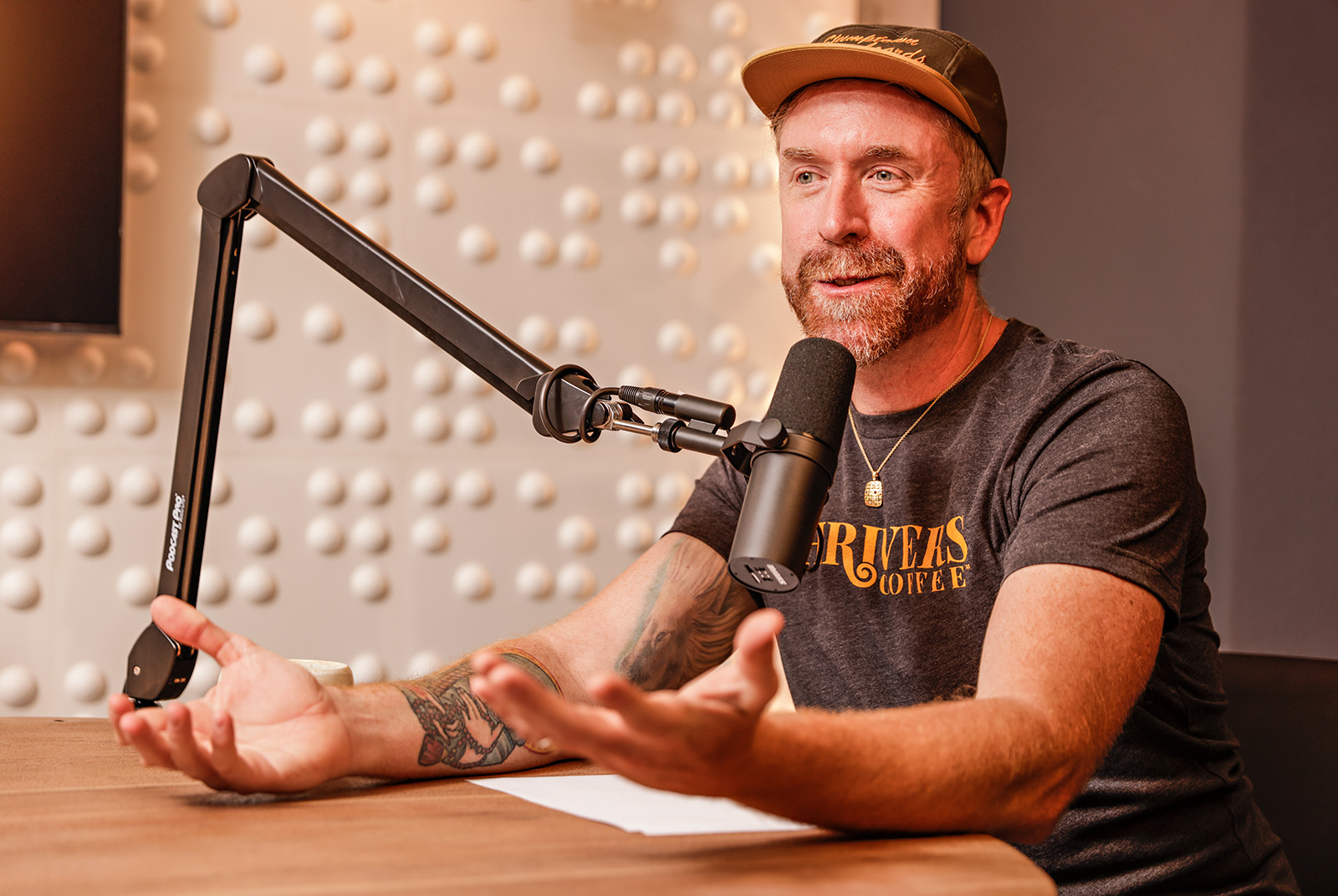Morgan Delaney Wants to Talk About Whitefish
In his new podcast, ‘Hello, Whitefish,’ the film producer and longtime local is unpacking the greatest stories — and biggest challenges — facing the resort town
By Denali Sagner
“Hello, Whitefish! Welcome back. Boy, what a week it’s been,” Morgan Delaney said, settling down in front of the camera as he began the fourth episode of his new audiovisual podcast.
Delaney is the creator and host of “Hello, Whitefish,” a podcast that brings some of the small town’s biggest players to the table to discuss everything from the local art scene to affordable housing to cannabis dispensaries. A born-and-raised Whitefish resident, the idea for the podcast came from what Delaney described as a desire to showcase unique local voices and stories, and to unpack some of the town’s most pressing issues.
In the month since “Hello, Whitefish” debuted, Delaney has chatted with Whitefish Mayor John Muhlfeld about how to run for city council and the “ding dong ordinance”; writer, director and actor David Blair about his favorite films; chef Earl Reynolds about growing up in Whitefish and the best restaurants in the Flathead Valley; and wildland firefighter Ken Browning about the highs and lows of wildfire fighting.
“I want to talk to the people who are important members of the community to get their story,” Delaney said. “To find out what the soul and character and personality of Whitefish is with these interviews.”

Delaney was raised in Whitefish, graduating from Whitefish High School in the late 1990s. While most of his experience in production comes from his years in Los Angeles working on film crews, Delaney said he got his start in journalism as a junior high school intern for the now-defunct Whitefish Journal newspaper.
After high school graduation, Delaney left Whitefish, moving out to San Francisco to work for a semiconductor company and, as he said, “to play punk rock and skateboard and write for zines and stuff.” With some friends from back home, Delaney found himself immersed in the world of what he called “gonzo punk rock journalism,” creating skateboard and snowboard zines (small, self-published collections of writing and images).
In 2004, he moved to Los Angeles, and spent the next decade working his way through the ranks of TV production crews, eventually becoming a producer and writer. Most of Delaney’s work centered on non-fiction, documentary style shows, which he said gave him a firm background in interviewing sources, something he came to love.
“I’m just inherently such a curious person,” he said. “I think everyone’s got such an amazing story.”
Delaney came back to Whitefish in 2015, returning to a place that felt reminiscent of his childhood years, but would soon see a wave of changes with the pandemic-era ski town housing boom.
“In 2015 it was still super cheap to live in Whitefish,” Delaney recalled. “You could be a starving artist or a starving skier, or whatever. It was no big deal.”
The eight years since Delaney moved back to Whitefish, however, have been complicated, as the confounding pressures of the pandemic, housing insecurity and shifting political winds have changed the landscape of the once more familiar, and sleepier, resort town.
“This community has experienced a lot of trauma,” Delaney said, speaking about a 2016 incident when white supremacists targeted Jewish families in Whitefish and the ongoing affordable housing crisis that has pushed hordes of locals out of their homes.
“There’s this facade of Whitefish being this beautiful, friendly place, which you hear tourists say all the time. But in a lot of the hearts of our community members, there’s a lot of suffering and uncertainty and confusion,” Delaney said.
For Delaney, “Hello, Whitefish” was born out of a need to “have more substantial conversations about what’s really happening.”
Setting up shop in the Whitefish Podcast Studio, which is owned and operated by Nic McKinley, the founder of Whitefish-based anti-human trafficking nonprofit DeliverFund, Delaney decided to get to work on what would become “Hello, Whitefish.”
Looking ahead to the future of the podcast, Delaney’s wish list of prospective “Hello, Whitefish” guests is lengthy — conservationists, spiritual leaders, journalists, teenagers, tribal leaders, local and state politicians.
Mostly, though, he said he’s “kind of just going by the zeitgeist.”
“What’s current? Like, really, what’s current?” he added.
All episodes of “Hello, Whitefish” can be found on YouTube, and Delaney says the show will soon be up on Spotify. The show can also be found on Instagram.